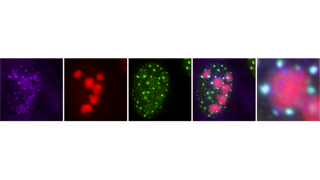Dissertation: Study Developed a New Method for Computing Education – Helps Identify Students’ Need for Support at an Early Stage

M.Sc. Denis Zhidkikh’s doctoral dissertation presents an approach that aims to understand student learning behaviour in computing education. By combining digital footprints collected from digital learning environments and students’ own experiences of their learning, a more comprehensive and understandable picture of the challenges and successes in learning is obtained.
The school world has undergone a revolution in the 21st century, as the emphasis has shifted from lecture-based teaching toward independent and individualized learning. With this change, students’ responsibility for managing their own learning has increased. At the same time, digital learning materials have enabled increasingly detailed monitoring of learning for students, while providing teachers with a more comprehensive overview of students’ progress.
The digital footprint generated from the use of digital materials has been utilized, for example, in the automatic detection of course dropouts, but such automations are often “black boxes,” the results of which are difficult to explain. For instance, automation might indicate the risk of dropping out of the course during the current week, but not the study path that has lead to this situation.
A more comprehensive picture by combining data and aptitude
Traditionally, student activity has been measured either by analyzing log data generated from behavior in digital environments or by collecting students’ experiences through surveys and interviews. In Zhidkikh’s dissertation, these two sources were combined into one approach.
According to the dissertation, the approach “combines trace log data with self-reports to enhance the observations with students’ personal experiences and aptitudes.” The approach utilizes learning analytics to identify general learning patterns and link them to academic performance. Additionally, the information obtained from learning analytics is anchored to reality through open self-assessments.
Knowledge helps devising targeted support
The method was developed and evaluated in three sub-studies, both in upper secondary school mathematics and in a university introductory programming course.
The key contribution of the research is that by combining data from different sources, practical information about students’ challenges is obtained. This information can be used to develop better support measures and to train teaching staff.
“The results can be utilized in future interventions, tool development, and training of teaching staff,” Zhidkikh states in his dissertation. The information helps, for example, teachers and course instructors to identify the need for support early and to better understand the student’s personal challenges.
M.Sc. Denis Zhidkikh’s doctoral dissertation “Self-Regulation and Student Success: Building a Data-Driven Approach to Understand Student Learning Behaviours in Computing Education” will be examined in Agora Auditorium 1 on November 26, 2025, at 12 o’clock. The opponent is Docent Jarkko Suhonen (University of Eastern Finland), and the custos is Docent Ville Isomöttönen from the University of Jyväskylä. The language of the dissertation defense is Finnish.




